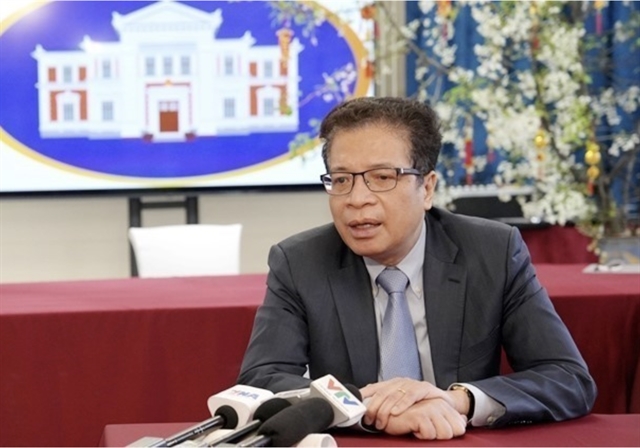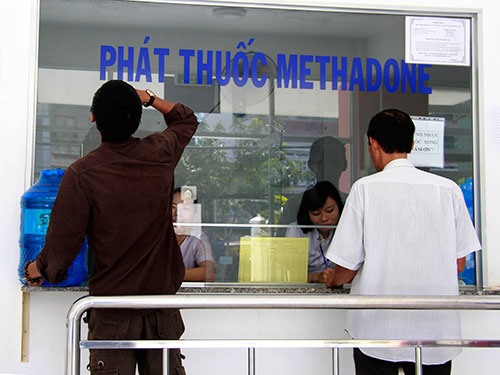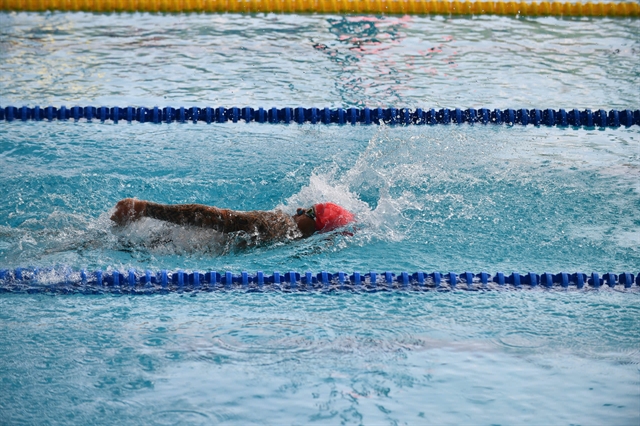 Opinion
Opinion

Nguyễn Trọng Đàm, Deputy Minister of Labour, Invalid and Social Affairs, talks to the newspaper Tin Tức (News) about the need to screen drug addicts before sending them to rehabilitation centres.
 |
| Addicted people receive Methadone at a medical unit. — Photo tiengchuong.vn |
Nguyễn Trọng Đàm, Deputy Minister of Labour, Invalid and Social Affairs, talks to the newspaper Tin Tức (News) about the need to screen drug addicts before sending them to rehabilitation centres.
Following your inspection visits to drug rehabilitation centres in Đồng Nai and Bà Rịa–Vũng Tàu provinces, what changes do you suggest in the management of drug addictions?
The most striking thing for me during the inspection visits was the overcrowding and inadequate infrastructure. This is something we have to deal with immediately, particularly with the hygiene problem and poor air flow in the rooms.
In addition, the use of synthetic drugs, ecstasy or LSD and others, has increased rapidly among drug addicts. A report from the southern provinces says that 80-82 per cent of residents in their rehabilitation centres using synthetic drugs.
Based on lessons learned from my visits to these rehabilitation centres, the Ministry of Labour, Invalids and Social Affairs has asked all localities to conduct careful screening of drug addicts, in accordance with the law, particularly to pinpoint their original residence. Under our current law, if we know their residency of origin, we can send them back to their communities for treatment. We only send to rehabilitation centres those whose place of origin cannot be traced. This is a good and effective way to reduce the number of addicts staying at these rehabilitation centres and providing them with better conditions to reform themselves.
In other words, if we do the initial screening properly, I’m sure we could avoid the type of mishaps that occurred in Đồng Nai and Bà Rịa–Vũng Tàu recently. (Around 200 inmates escaped from a drug rehabilitation center in the southern province of Bà Rịa–Vũng Tàu on Nov 9, just two days after police struggled to defuse tensions at another center in the neighboring province of Đồng Nai.)
Do you mean that we need to review our current policy on sending drug addicts to rehabilitation centres?
Before sending the drug addicts to their home districts, we still need somewhere to keep them while we try to trace their origins and arrange their transfer. That’s why the Government asked the chairman of the Provincial People’s Committee to arrange a temporary place to shelter them. During their stay there, they will also receive medication to cut down their drug craving and conduct detoxification.
This have led to their misunderstanding that they were forced to go to the rehabilitation centres. As a result, many of them refused to co-operate with the officers working in the centres, as happened recently in Đồng Nai and Bà Rịa–Vũng Tàu Provinces. This is an expensive lesson for us.
Many people have said that sending drug addicts to rehabilitation centres is not the best option. How do you respond?
Based on experience of the past 20 years, I should say sending drug addicts to rehabilitation centres to help them give up their addiction is not the best solution. I have to confess that after completing their treatment courses in these centres, many of them have relapsed.
That’s why we must change our method of reforming these drug addicts and do it right in the community where they live, through medication and communal support. For example, we can give them Methadone and explain to local people that drug addiction is a kind of disease that needs treatment.
Following the use of Methadone to replace synthetic drugs, MOLISA has concluded that this method has much better results than sending drug addicts to rehabilitation centres. A recent survey shows that more than 45 per cent of drug addicts taking Methadone in their community have successfully quit their use of heroin.
However, I have to concede that treating drug addicts in their communities still faces quite a few hurdles as not all drug addicts have registered for the Methadone treatment. Our target is to get 800,000 drug addicts to use the substitute, but so far we have only reached 50,000. To win the fight against drug addiction, we need support from the whole community and also the willingness of drug addicts.—VNS




